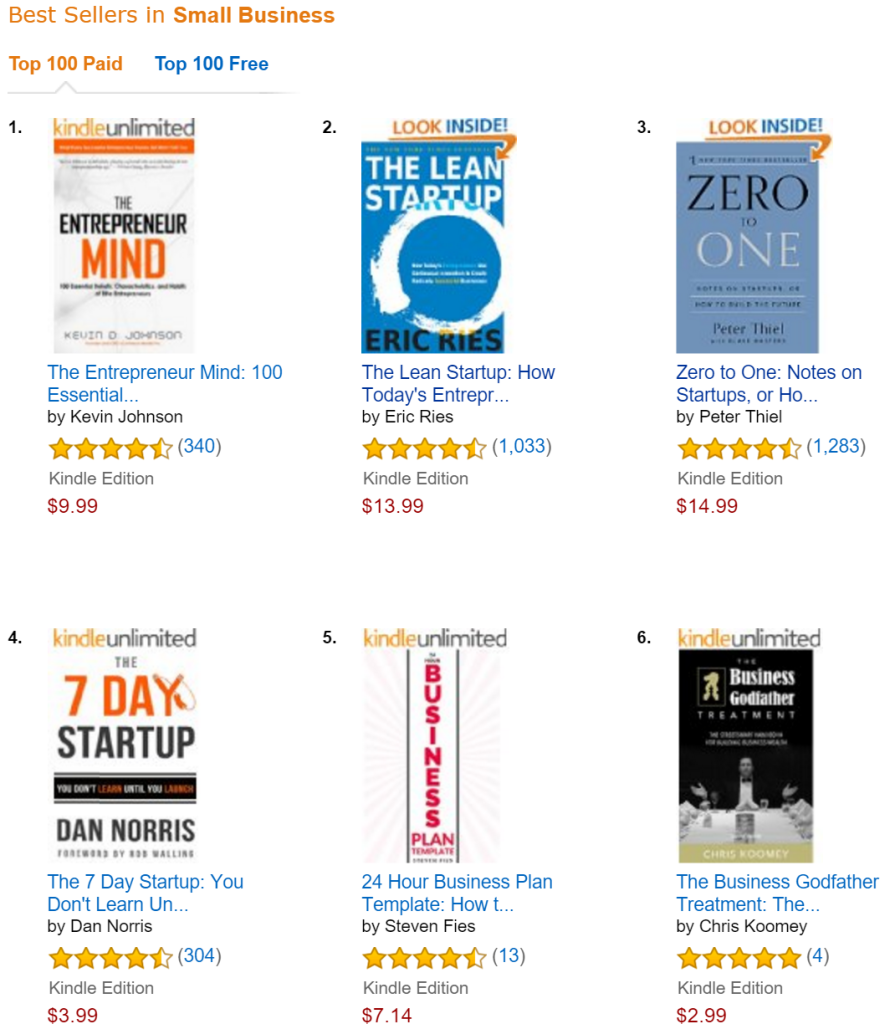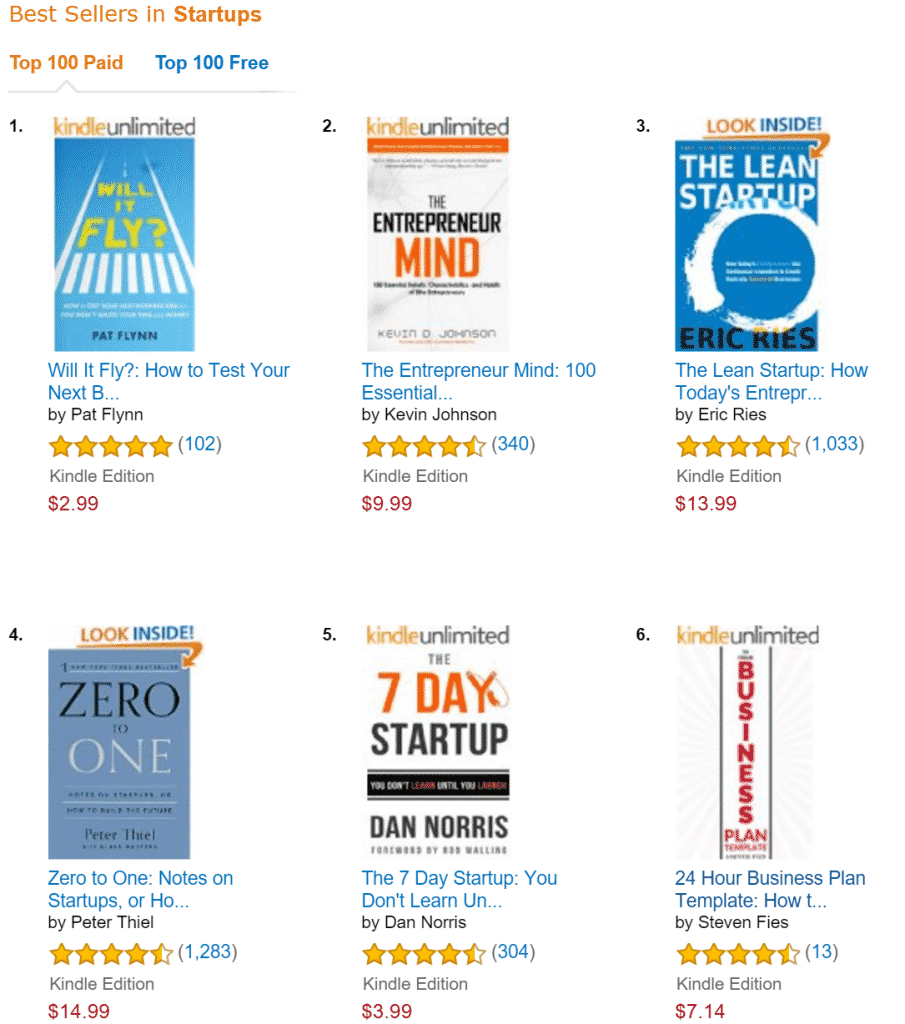Are you tough enough to handle entrepreneurship?
Part of the rite of passage in becoming an entrepreneur – at least for most of us, I think – is having your ego shattered. This probably sounds like a terrible thing. However, it is actually very insightful and valuable.
What do I mean exactly?
- You quickly become aware of your many flaws and shortcomings.
- You are forced to leave many things unfinished since you wear all hats.
- You learn how tough it is to test ideas, products, and strategies quickly.
- You learn to view and value money differently.
- You learn to view and value time differently.
Let’s look at these one by one.
You quickly become aware of your many flaws and shortcomings.
This is one of the first things you realize when setting out on your own.
You no longer have the comfort of a steady paycheck, benefits, or co-workers to help share the load. You do not have a boss to define and measure your performance – this is up to you now – and so you must become your own harsh judge of yourself.
Moreover, you quickly (and somewhat painfully) begin to see all of your weaknesses with more clarity than ever before. And you begin to understand how they are holding you back from reaching success.
Whether it’s a particular skill you lack, a piece of knowledge, self-discipline, planning and organizational skills, or something else entirely – it suddenly hits you in the face that you need to figure it out, and fast!
The upside to this, however, is that it has the potential to spurn immense personal growth. In the past year I’ve used my own products to significantly increase my emotional intelligence, and to better apply my unique talents to my growing business.
Plus, you still have great days/weeks/months sometimes. This can make all the difference. For example, this past week I closed nearly a five-figure contract at my main business, plus saw an immense spike in sales across all of my published books.
Talk about a great week.
The work I’ve done on myself and my business is beginning to pay off in increasingly large ways, and much of it can be attributed to the accelerated personal growth I’ve achieved as a result of realizing my flaws and shortcomings.
You are forced to leave many things unfinished since you wear all hats.
In a more established business, typically there are employees who specialize in various tasks. For instance, when I was working for a small manufacturing business with a dozen employees, we had:
- President
- Production Manager
- Online Store Manager
- Warehouse Manager
- 2x Accounting Clerks
- 3x FT Sales People
- 2x Admin People
- Web Developer/Programmer
- Marketing Intern
Even at this company people wore many hats, but at least their primary responsibilities were clearly defined – an advantage to working for an established business.
As an entrepreneur, you “get” to be all of these things at the same time. This isn’t for everyone, but for someone like me this is exactly where I like to be – and I thrive on it.
Having some web design experience, I built my own business website and enjoy maintaining it; having worked in sales, I’ve been able to close deals and bring in new accounts; having worked in management, I’ve been able to successfully plan and execute various projects to advance my business goals.
Of course, it’s not always easy to do everything at once. I wish I had more time for sales and marketing, but since I’m also handling fulfillment, accounting/invoicing, web design, and everything else, I’m lucky to squeeze in more than a half day on any given day of the week.
This is okay, though, because momentum is still moving forward and key objectives are still being achieved. The trick is finding the sweet spot whereby you allocate your time properly your various responsibilities. Admittedly, this has taken me some time and is constantly changing – but that’s good, because the needs of my business are changing with growth.
You learn how tough it is to test ideas, products, and strategies quickly.
If only you had a hundred great ideas and a fat budget, you could test them all and find out what works best in short time. This is something that really only happens at larger businesses with deep pockets, though, and even then – ideas may only be tested a few at a time to avoid going totally bonkers with the budget.
For bootstrap entrepreneurs like me, and even for many well-funded startups, you have a small team and a small budget. This means you can’t take the shotgun approach to anything* – not sales and marketing, not product dev, nothing really.
*Well…this isn’t entirely true…for example, I do engage in cold email marketing which is pretty much a shotgun blast. But what I’m referring to here is more about resources and less about the methods themselves.
Instead you need to become a sniper. You need to line up clear shots and take them one at a time. You need to make the most of your limited resources, which also means you can’t afford to spread yourself thin trying to do/test everything at once.
This can be frustrating, especially if your chosen approach isn’t working. How long should you “test” it before deciding if it will work or not? When is the right time to call it quits vs. double down because you’re on the verge of success?
Thomas Edison was rumored to have made close to 10,000 light bulbs before getting the design right. When he finished light bulb #4,384, surely he was asking himself these same questions. Is it even possible? How far off am I? How long will this take?
Luckily, thanks to his curiosity and drive, humankind no longer has to rely on candlelight to see in the dark.
It can still drive a person crazy, though, to wonder if their experiments are an exercise in insanity or simply a matter of paying dues to eventually achieve the goal.
You learn to view and value money differently.
This is something I talk about in my craigslist book (which is sitting at #1 across all of its categories on Amazon.com this week. Nice!).
Basically, instead of viewing money as a thing that you spend as a consumer, you begin to see it as a thing you invest as a producer.
Take advertising, for example. It’s a necessary thing for any and every business. There are different ways to advertise, for instance:
- Direct mail
- Google Adsense / Bing / PPC Networks
- Social and Display Networks
- Cold Email Marketing
- Cold Calling
- Door to Door
- SEO / Content Marketing / Inbound
- Flyer Campaigns
- Networking / Referral Selling
- PR (Public Relations)
- Viral Advertising
- Speaking Engagements
- Special Events
- Trade Shows
- More, more, more
There are hundreds more methods we could list here, and as mentioned in the last section, there’s no way you’re going to do all of them at once if you’re an entrepreneur.
But you do need to be investing in at least one, if not a few, of these advertising channels. Why? Simple. The second you stop putting yourself in front of people, you’re finished. (If you already have a thriving business and you’re getting lots of referrals/repeat business, you might be able to ditch advertising for a while… but as a newbie entrepreneur or startup, this generally isn’t the case.)
Because virtually every form of advertising costs money, you come to view money as a tool to get in front of people. You begin to view your finances in terms of ROI from such investment, rather than strictly seeing the cost alone.
Anybody can shy away from an advertising campaign because of its uncertain results and certain cost. But business is a pay-to-play game, and if you aren’t willing to by game tokens and put them into the machine, the best you’ll do is watch the other kids play all the fun games while you sit on the sidelines and get jealous.
Don’t get me wrong – you will likely engage in costly ad campaigns that fail and leave you wondering where your ROI went. And if that failed campaign was your entire budget, you might well be f***ed. But this is all part of what you need to be thinking about from the beginning. How are you going to obtain the funding you need to test at least one, if not a few good advertising strategies, to get things off the ground?
Bottom line, you must be thinking about sales, marketing, and advertising as a top-of-mind thing – and this has the capacity to shift your paradigm of money away from consumption and towards production.
You learn to view and value time differently.
This plays into the “wearing many hats” thing quite directly. The clock keeps ticking no matter what you do, and your time management abilities can often spell the difference between success and failure.
This doesn’t mean you necessarily need to wake up at 5:00 a.m. sharp every day and work 16 hours like some CEOs that are touted in the media. But it does mean that you need to get more strategic about how you use your time.
No matter how fast or slow the needle is moving for you and your business, the days keep on ticking by… and at least for me, one day I had the realization that time management may be the final frontier for successful people.
The thing is, it doesn’t matter how much money you have. We all have the same 24 hours in the day, and the people who continue to succeed are using their time smarter. They are more efficient and potent in the things they choose to do, vs. what they choose not to do with their time.
At a minimum, this means you need to prioritize your work highly enough to be sure key objectives are completed. At a maximum, it means you need to completely re-think how you are spending your time.
Currently I’m 28 years old and next month will be 29 – another year closer to the big 3-0. Needless to say, the way I’m using my time now is far different from when I was, oh… say 21-24 years old.
Conclusion
Entrepreneurship isn’t for everyone, but I’m always rooting for anyone who wants to give it a shot. Not only is it the so-called American Dream, but I believe if someone harnesses their unique talents and strengths, they can eventually find a way to become their own boss.
Speaking of which, if you are thinking about starting a business – I’ve written a book about this very subject that you may find helpful: 24 Hour Business Plan Template: How to Validate Your Startup Ideas and Plan Your Business Venture.
This week it’s been climbing the charts, sitting at #5 in all Small Business books and #6 in Startups on Amazon. 🙂


